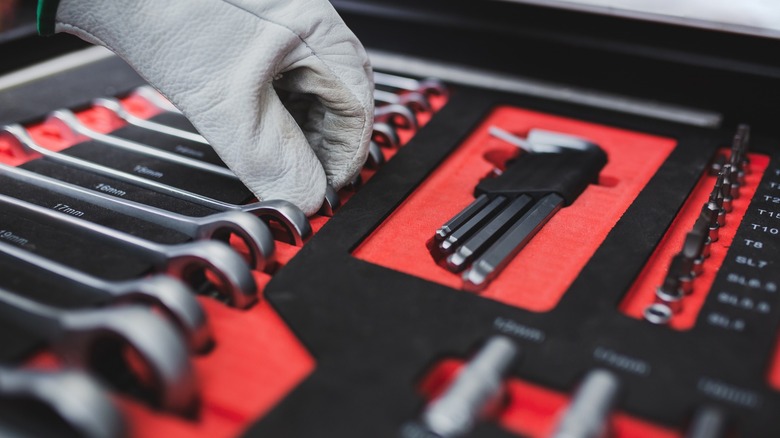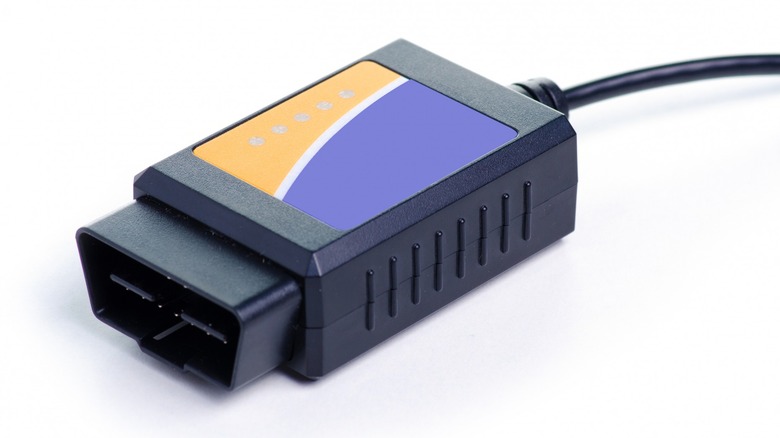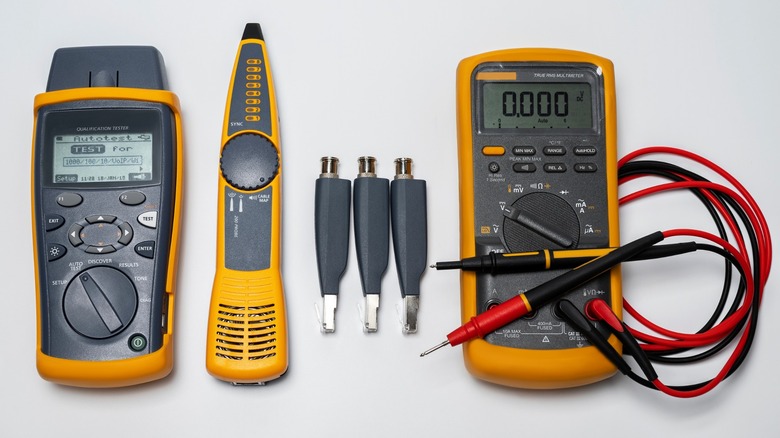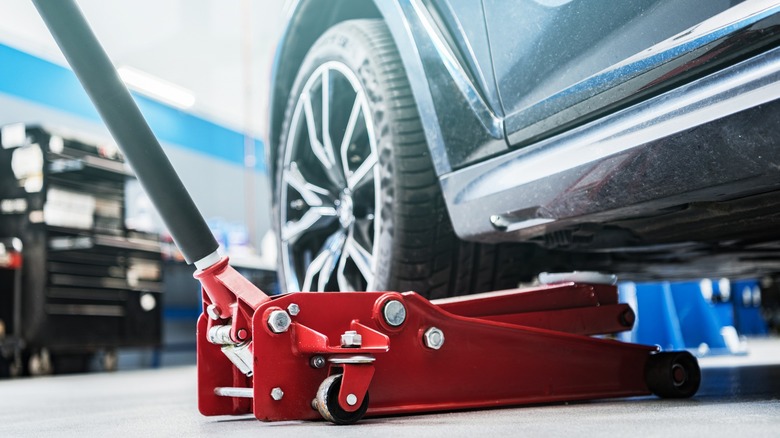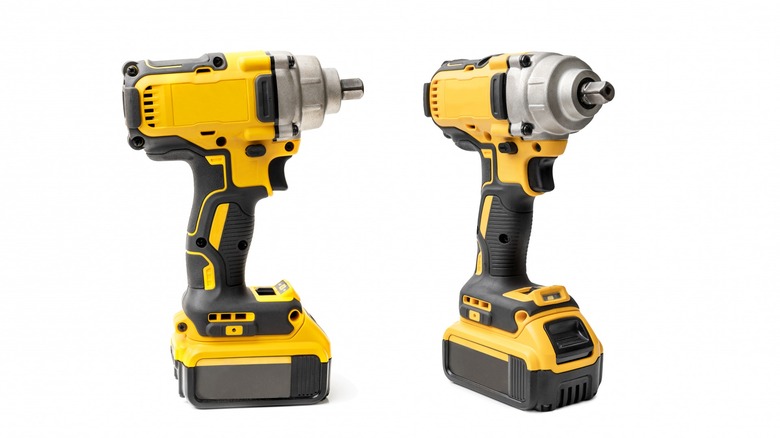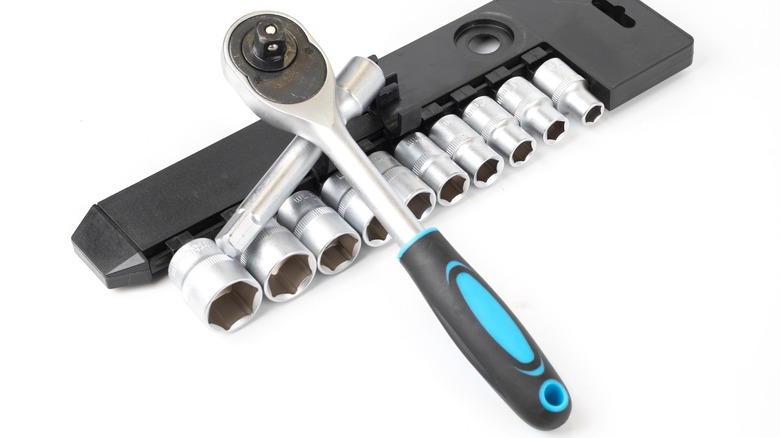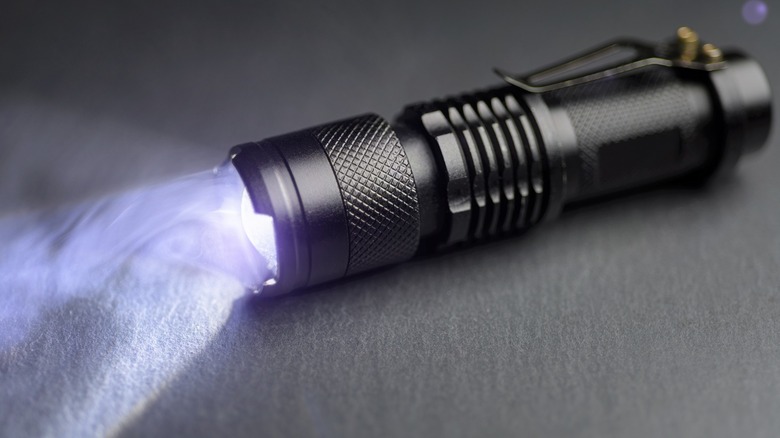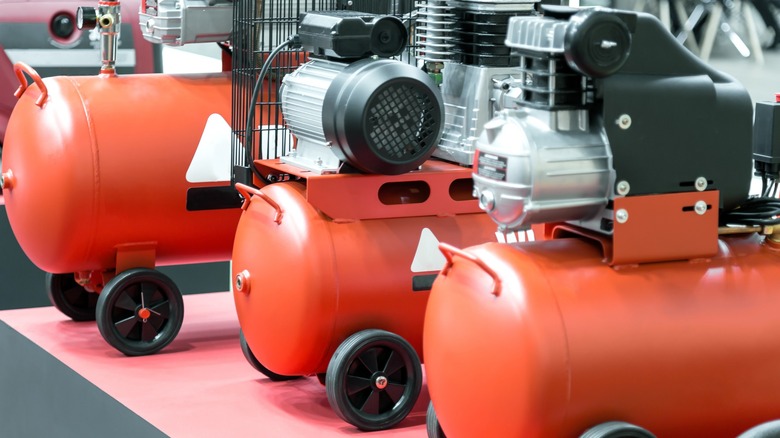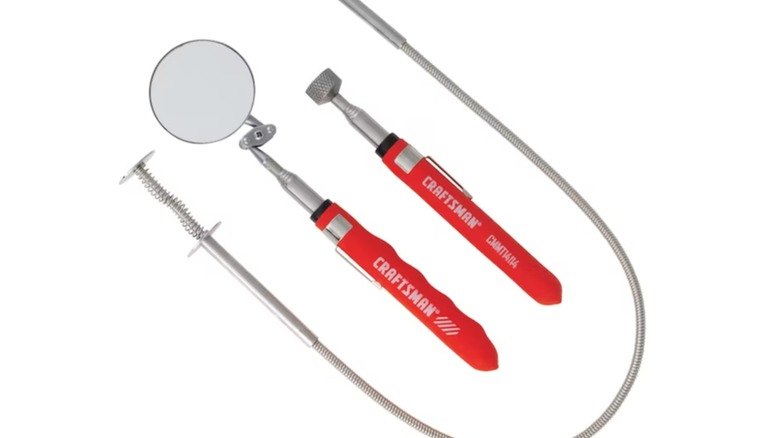8 Essential Tools For DIY Engine Maintenance
We may receive a commission on purchases made from links.
Just as death and taxes are unavoidable in life, maintenance cannot be avoided if you own a car. Since cars are one of the largest purchases any of us will ever make, there is a great incentive to keep them up and running in the best condition possible. Not only does it prevent added expense from costly repairs down the line, but it also keeps them up and in a more pleasant condition to live with daily. The problem is that auto shops are costly and maintenance costs seem to keep rising faster than anything else. With the average hourly rate for labor hovering north of $100, you probably want to find any way possible to reduce your expenses on regular maintenance and simple repairs. Fortunately for you, much of it can be done yourself.
Modern cars are incredibly complex and technologically advanced. It should be a given that you will need basic hand tools including screwdrivers and wrenches, but here are some suggestions of eight essential tools that have long been a part of this author's tool collection to help you get some maintenance done yourself.
OBD2 Scanner: Friencity WiFi OBD2 Scanner
Every car built with electronic fuel injection has an electronic control unit, essentially the car's computer, to monitor the engine and control the fuel delivery and spark plug ignition. At one time, each individual manufacturer built its own interface used to plug in a computer to get readings and trouble codes to help diagnose a problem. In 1994, California introduced regulations to require all cars to use the same data port and that became a federal requirement in 1996. Since then, mechanics could use a single scanner with one connector instead of having a different one for each make of car rolling into the shop.
This means that you can also obtain one of these scanners to see why your check engine light is illuminated. While the code alone is not usually enough to figure out the problem, it will at least point you in the right direction. At a minimum, you can use the scanner to keep your mechanic honest and verify a diagnosis before shelling out hundreds to have something fixed. One recommendation would be the Friencity WiFi OBD2 Scanner, which only costs $14.59 and connects to your phone via Bluetooth and the Torque Pro app. The app is only $4.99 on the Play Store and similar apps are available for iOS. It is very helpful although it only reads engine codes and cannot help with ABS, Airbags, and other systems. Advanced scanners from brands like Autel that do everything can cost upwards of $500.
Digital multimeter: Fluke 101
Electrical problems are often the most confounding and frustrating problems that arise on any car, new or old. However, some of the most basic issues come up from battery problems, and having something to test it can be highly beneficial.
A digital multimeter measures electricity. Most basic models today can measure the 12-volt direct current (DC) used in cars and the 120-volt (220 in Europe) alternating current (AC) used in buildings. They can also measure amperage, which is the amount of current flowing through a circuit, and the resistance, which is measured in ohms, and tells you how freely current flows through a circuit. A multimeter can help you determine if your battery is dead or if your car is charging. Other battery readings can give you insight into how healthy the battery is and whether, even though it is charged, the battery is likely to hold it.
Multimeters can be picked up these days for as little as five dollars. While they might work, they are unlikely to be accurate and prone to breaking after little use. A Fluke multimeter is widely regarded as one of the best but can cost hundreds of dollars for a premium model such as the Fluke 117. Fortunately, a lesser Fluke 101 is now offered for just $43.50 and should work for the basic needs of the average car owner.
Hydraulic jack: Pittsburgh Automotive 1.5-ton Racing Jack
There are dozens of jobs you might need or want to take care of on your car that require some degree of getting under it or having one or more wheels off the ground. Your car should have a jack included with the spare tire, although many recent models have ditched the spare in favor of a can in sealant. That jack can be a lifesaver when you have a blowout on vacation but is completely inadequate for doing regular maintenance. Yes, it will work, but it is best used only on the roadside. For regular use, a hydraulic jack is best.
Hydraulic jacks come in a variety of sizes and styles. The most basic models are relatively affordable and are suitable for a variety of jobs but may have some limitations. A floor jack typically works best. These have greater capacity and greater lifting height, and their long handles make for easy operation. A do-it-all recommendation would be the Pittsburgh Automotive 1.5-ton Low-Profile Racing Jack. It is a low-profile model that slips under low cars easily but it would not be the best for a pickup or taller SUV. Regardless, Harbor Freight has many models ranging from $39 for the cheapest one to around $300 for a heavy-duty model. For anyone planning to do oil changes, tire rotation, or more than the most basic repairs under the hood, a hydraulic jack is a must-have tool.
Impact driver: Hyper Tough 20V Max Cordless Impact Driver
Good power tools can be the difference in making a job quick and easy or long and arduous. This is especially true with new cars, as manufacturers place more panels and covers over components than ever. Today, even just changing the oil may require removing a plastic panel from underneath the engine, and it can have at least a dozen screws holding it on.
For these jobs and more, having an impact driver can make it go so much more smoothly than doing it without. Although they look similar to a drill, they differ in that they are made to drive nuts and bolts, and they include a mechanism that can help break loose stubborn fasteners. Anyone shopping for an impact driver should pick up something like a DeWalt Atomic 20V Max Impact Driver. However, at $164.99, it is a pricey product made for professional use and not ideal for the casual mechanic on a budget. For occasional use only, Wal-Mart sells its own Hyper Tough 20V Max Cordless Impact Driver for just $44.88. If you just need it for a few weekends per year, it should perform adequately and provide good value for the price.
Metric socket set: Craftsman 189-piece Mechanics Tool Set
The basic tool set needed to do general repairs and maintenance includes sockets, but I wanted to dive a little deeper into the subject to explain some of the nuances in the wide selection of sockets available. First of all, for the home mechanic, brand name is not so important. Someone using tools to make a living should invest in more expensive tools, although the outlay for Snap-On tools can get excessive. For the weekender, almost any sockets will do. Since they are of good quality, reasonably priced, and available anywhere, American-made Craftsman tools would be best for these purposes.
Imported cars have practically always used metric fasteners, while American carmakers are more recent adopters of the measurement system. Therefore, unless you are working on classic American muscle cars, you will need metric sockets. Furthermore, there are a few different types of sockets that are not just helpful, but imperative to do some jobs. Therefore, to tackle the majority of routine maintenance jobs and minor repairs, you should have ¼-inch and ⅜-inch drive ratchets with accompanying sockets. You should have both shallow and deep sockets in both 1.4-inch and ⅜-inch along with a selection of extensions. To cover all the bases in one fell swoop, a Craftsman 189-piece Mechanics Tool Set would be a good choice. Otherwise, if you can find another brand you prefer, just make sure you get the right assortment for the job.
LED lighting: Hyper Tough 1200 Lumen LED Portable Work Light
This might seem like common sense, but you may not have the best options already, and there are a great many good solutions available today. Having ample light is imperative to doing a job well as trying to work blind can lead to missed nuts and bolts preventing the removal of components or certain surfaces being left dirty when cleanliness is necessary. Ample reasons exist to have a brightly lit workspace. Luckily, modern technology has you covered.
It is good to have a range of lighting options to use for a variety of jobs, whether you are replacing suspension components under the car or rewiring a stereo under the dashboard. There is reason to use a handheld shop light extension cord with a regular LED bulb, while also utilizing a couple of flat-panel LED lights, tactical flashlights, and bright overhead lighting. It is also recommended to carry different sizes of flashlight. Furthermore, don't shy away from spending the extra money for a rechargeable flashlight, as constantly buying batteries gets old quickly. For a general-purpose light that provides decent illumination, the Hyper Tough 1200 Lumen LED Portable Work Light from Wal-Mart does a good job and only costs $19.97, and it doubles as a portable power bank.
Air Compressor: McGraw 3-Gallon Air Compressor
If you don't have much exposure to using one in a workspace, you probably don't know just how useful an air compressor can be. Of course, they can be used for filling up your tires, but they have so many more uses beyond tires.
Air compressors come in a range of sizes from the minimal unit for the home garage to industrial strength meant for operating tools in industrial warehouses. For these purposes, the smaller units will suffice. Having air to keep tires inflated is not their only purpose but cannot be understated how convenient it is. Should you have a slow leak or find a nail in your tire, taking care of it at home is way easier than limping a half-full tire to the gas station until you can get it fixed. When you are doing work on your car, a blow gun on the hose can be used to clear debris and dirt from whatever you are working on and give clear access to the area or quickly dry something you are cleaning. Air tools can also be driven with compressed air and something like an air chisel and be useful with really rusty and stubborn parts. Something like the McGraw Three-Gallon Air Compressor from Harbor Freight is reasonably priced at $59.99, but a larger unit is recommended if you plan to be doing work regularly.
Small tools: Craftsman Automotive Retrieval Tool Kit
In any well-stocked toolbox with some of the biggest and most expensive power tools, you will find an assortment of small and cheap odds and ends that are indispensable to every mechanic. In at least one drawer, there will be a telescoping mirror or two, a telescoping magnet tool, an extended pickup/claw tool, various small screwdrivers, and other small picks, knives, and miscellaneous bits.
Perhaps the most useful tool of all is the tiny pocket screwdriver. These are often distributed for free with company branding like pens at a doctor's office and include a clip to be stuck in a shirt pocket. Small mirrors can help you see within the many crevices under a car's hood, and a magnet is imperative for picking up the inevitable dropped nut or bolt. Small magnifying glasses can be useful and other assorted plastic tools for prying away trim without scratching paint should be included. To get your drawer started, the Craftsman Automotive Retrieval Tool kit, available from Lowe's, is a good start and only costs $9.99. From there, pick up random little tools whenever you come by them and throw them in the drawer. Even if you don't think you need them, you never know when they may come in handy.
